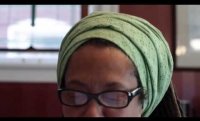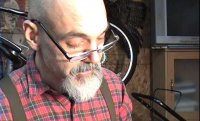Innovator of American Verse Wins Bollingen Prize
The Yale University Library announced yesterday the winner of the one-hundred-thousand-dollar Bollingen Prize for a poet's lifetime contributions to the art.
The award goes to "fierce elegist" Susan Howe, author of works of poetry and lyric prose that weave together "history and mysticism, Puritan New England devotional writing and the Irish folk Ballad, visual lyricism and dramatic narrative, scholarship and memoir."
According to judges Peter Gizzi, Marjorie Perloff, and Claudia Rankine, Howe's most recent book, That This, published by New Directions in December, "makes manifest the raw edges of elegy through the collision of verse and prose, visionary lyricism and mundane incident, ekphrasis, visual patterning, and the reclamation of historical documents." Howe wrote the book after the sudden death of her husband, scholar Peter H. Hare, in 2008.
Howe's oeuvre also includes the poetry collections Souls of the Labadie Tract (2007), The Midnight (2003), The Europe of Trusts: Selected Poems (2002), Pierce-Arrow (1999), Frame Structures: Early Poems 1974–1979 (1996), The Nonconformist's Memorial (1993), all published by New Directions, and Singularities (Wesleyan University Press, 1990). She is author of the prose volumes The Birth-Mark: Unsettling the Wilderness in American Literary History (Wesleyan University Press, 1993) and My Emily Dickinson (North Atlantic Books, 1985).
The Bollingen Prize has been given biennially since 1948 to honor American poets. Past winners include John Ashbery, Robert Creeley, Marianne Moore, Ezra Pound, and Adrienne Rich.






![LLOYD COLE - Writers Retreat! [OFFICIAL]](https://www.pw.org/files/styles/video_thumb_medium/public/media-oembed/i.ytimg.com/vi/yyWPpToywbg/hqdefault.jpg?itok=gKEEPplB)



